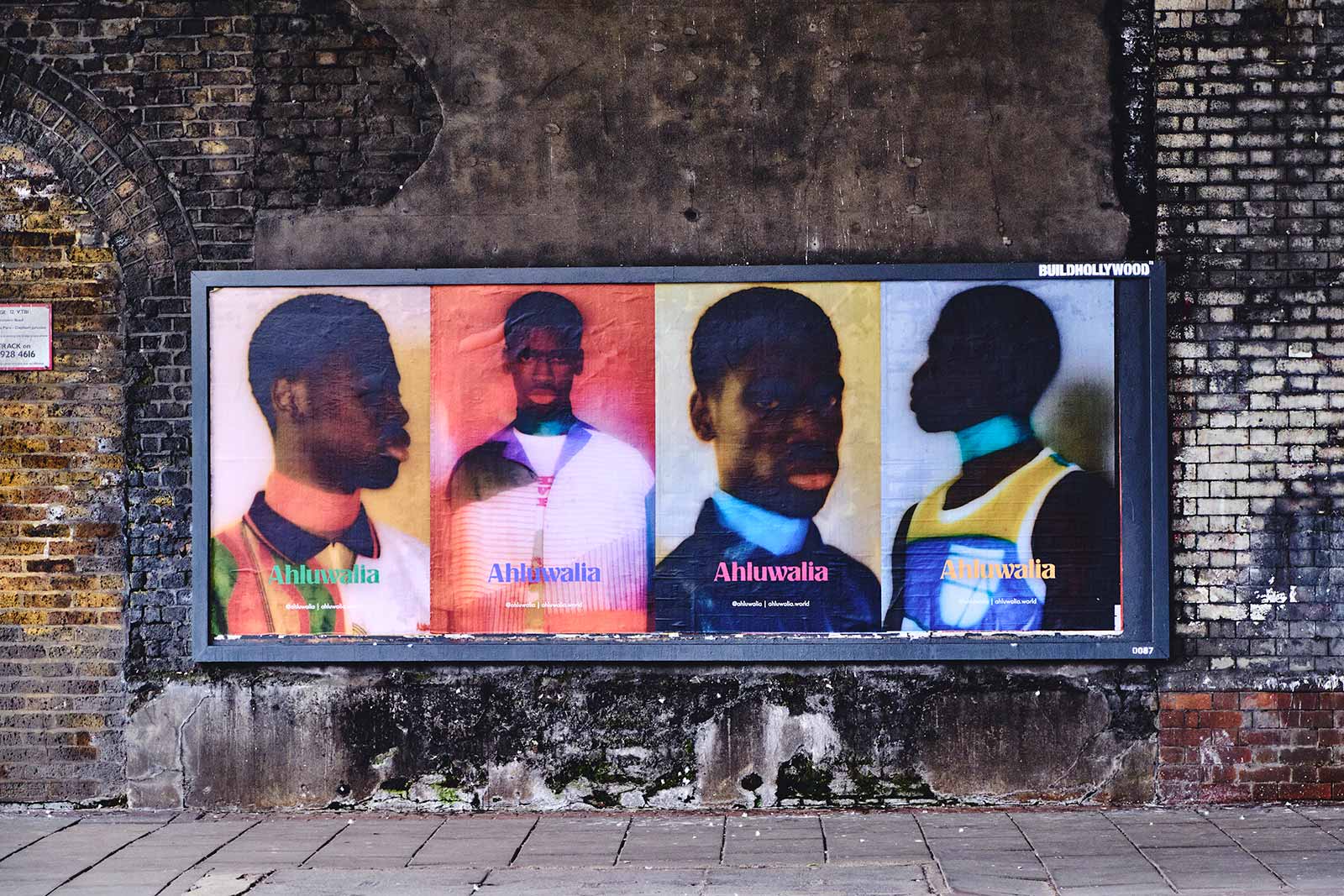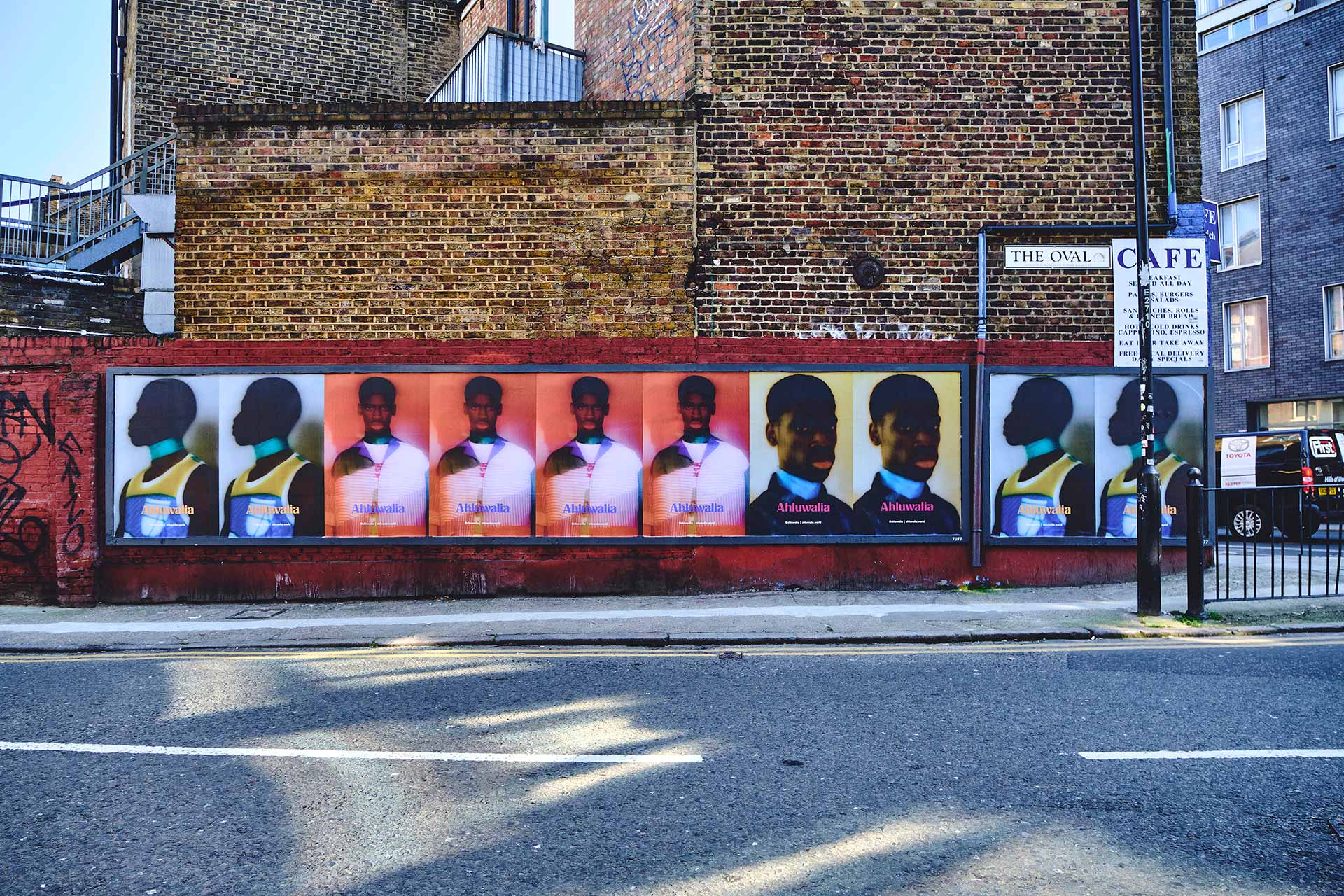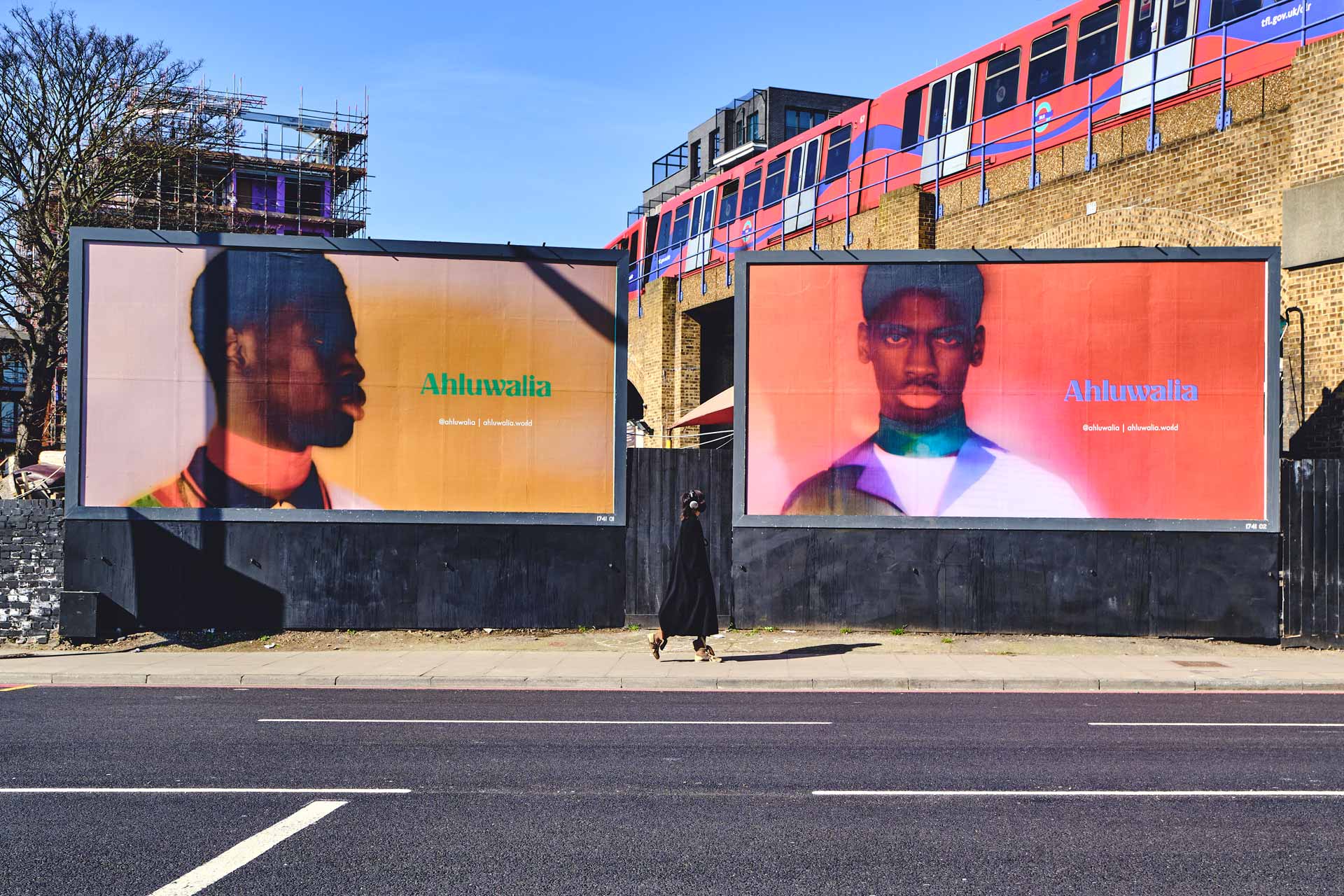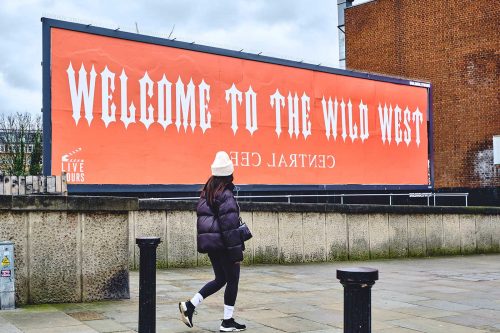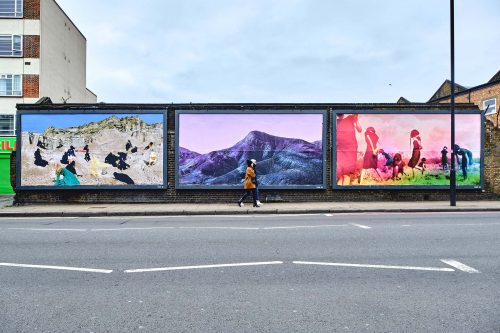You use a lot of photography across your work. What function do you think photographs serve for migrant communities in Britain?
Photos can be a weapon, or they can be a tool. I think it depends on who’s taking a photo, what the context is, how it’s created. I recently read two really interesting books, one is called The Whole Picture: The colonial story of the art in our Museums & why we need to talk about it and one’s called Curatorial Activism: Towards an Ethics of Curating. It’s about how the person creating the image’s gaze affects the subject. That’s something really important to Laurence and I. Lawrence does a lot of projects with different communities, and he’s always trying to figure out ways that can be a collaborative process. It’s about making sure that the people in the photos are happy. Do they have any ideas that they want to bring to the table? Do they want to stand somewhere in particular that is important to them? I think a lot of past photography has been taken of different communities through a gaze that’s not their own, so it hasn’t been representative.
Tell us about what it was like working on your first film Joy (2020) as part of Gucci’s film festival?
Doing a film supported by Gucci means that the film is on a global stage. I was thinking about what I would want to say with such a huge opportunity. When I linked up with Samona Olanipekun, the director, we wanted to show the amazing efforts of people that come before us in terms of fighting for liberation and equality, and how that allows people’s lives to blossom now. Even the fact that I get to make the film, that’s because people before me fought for me to have the right to say what I want, so that was why I wanted to make a film about it.
I’m really close to my Mum. She worked so hard to take us from nothing to something when I was a kid and I’ve always found that really inspirational. I think why I am the way I am and why I find work ethic really important comes from her. One of the women in the film, my Auntie Lola who’s singing, is my best friend’s mum, so I’ve also grown up with her and had cooking lessons with her and chatted with her and lived with her as well. I’m fortunate to know lots of different women from different walks of life that are incredible in their own ways. I’m inspired by them as who they are, whether they’re strong or whether they’re open about their feelings, which is a different type of strength.
Why are you particularly drawn to the idea of telling stories, whether they’re from the past or from the present?
I’ve always loved reading. I’m someone that has always had an affinity with stories and novels. I think fashion has been pretty Eurocentric for a while. There are other stories that could be told and other experiences that can be shared. I quite like the fact that I’m able to do that from a place of authenticity.
What was it like creating the short film Traces to showcase the AW21 collection?
It’s a real team effort. I think there were 40 people that worked on it. I worked with Stephen Isaac-Wilson and said I had this initial idea where I wanted cktrl to be in the film as a central figure and have this group of models that work around him. Stephen read all my notes about Migration and Kerry James Marshall. With the lookbook we worked with a set designer, Chris Melgram, who we sent the research to and he developed a set for the film. We took some elements from the set and moved them into the lookbook. The makeup was done by Bari Khalique and it was inspired by Kerry James Marshall paintings and how he highlights people’s faces in his paintings, then we put our own spin on it. The A emblem in the backgrounds of both the film and the collection comes from a new emblem we developed this season. I said to Nell Kalonji who did the styling that although the collection is filled with different colours and is very varied in terms of texture, I really wanted it to feel quite uniform in a way. I think she did that so successfully. I said to Laurence that I would love him to shoot the lookbook. The music that Bradley aka cktrl was him essentially reading my research and responding to it. It’s a big discussion with every creative.


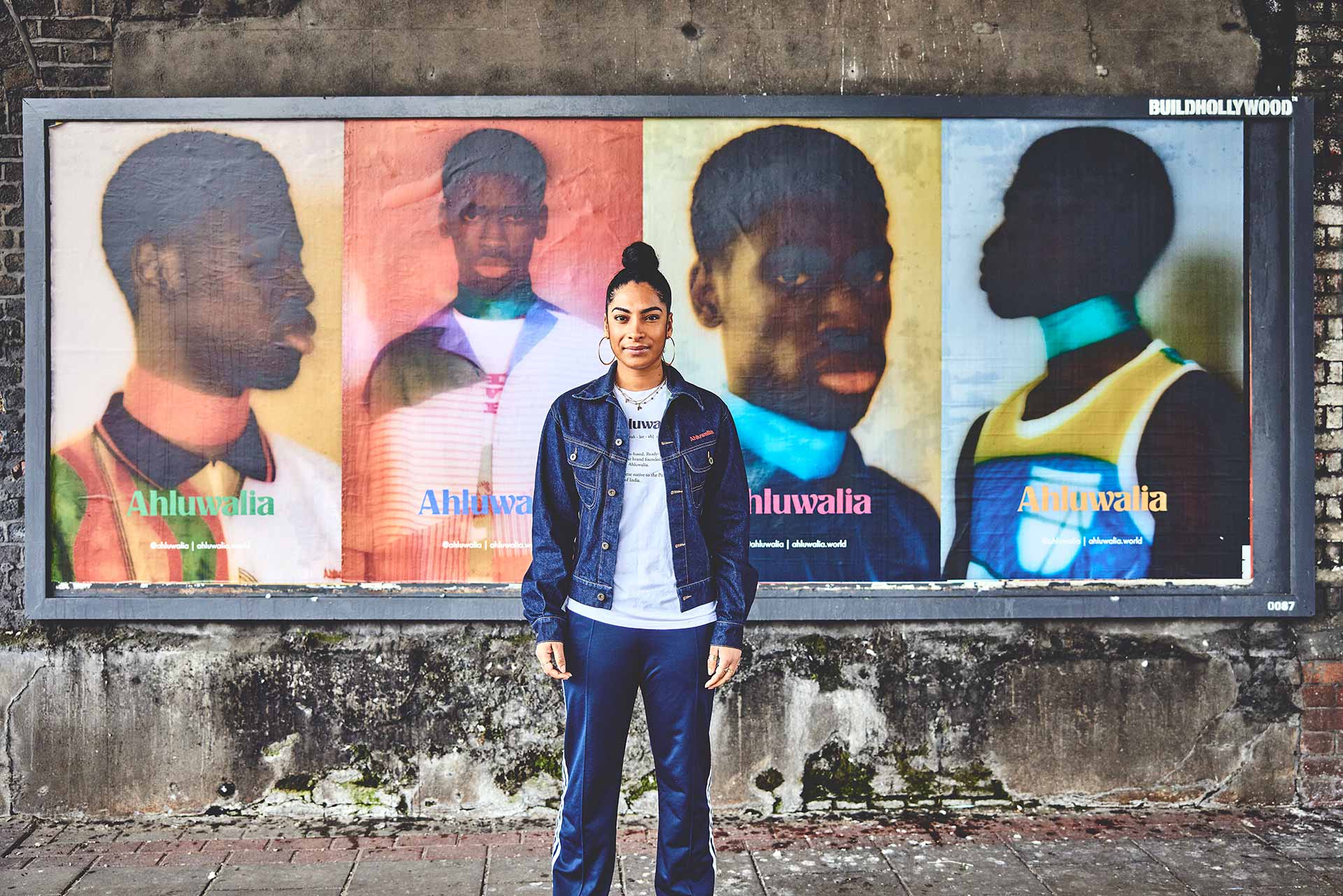
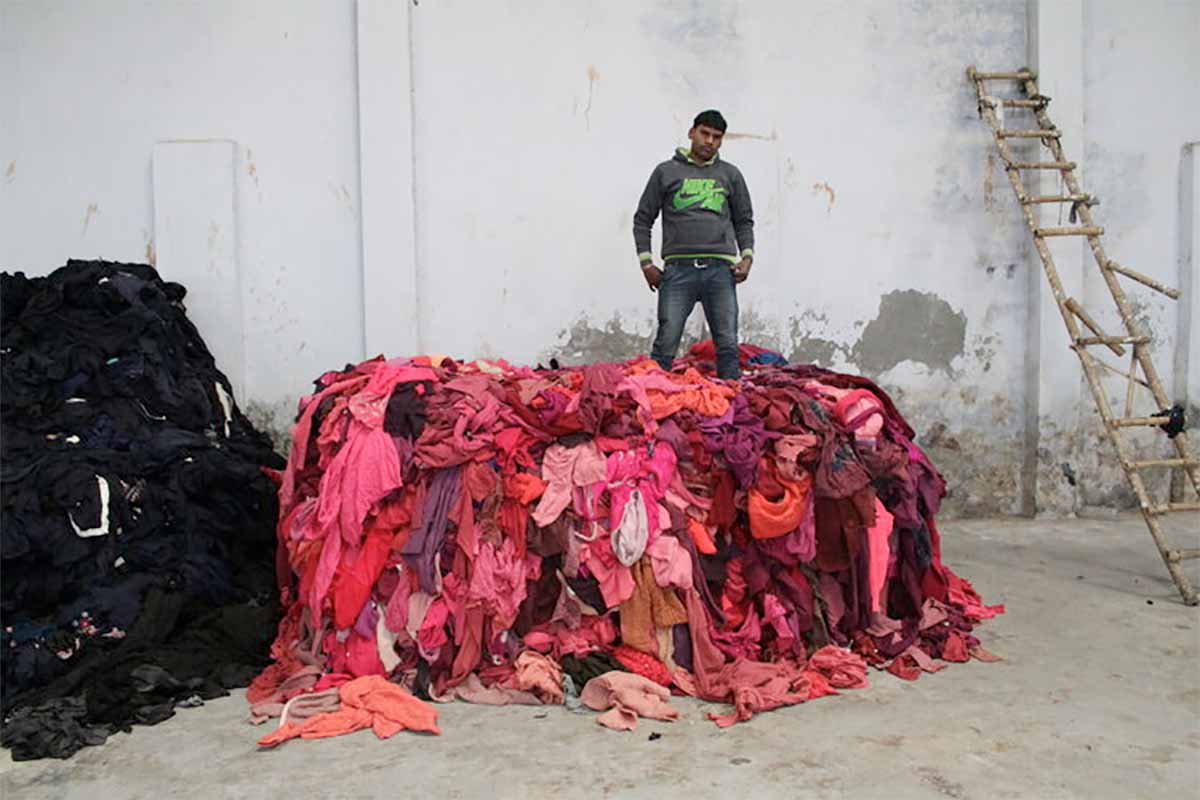 Sweet Lassi (2017) by Priya Ahluwalia
Sweet Lassi (2017) by Priya Ahluwalia
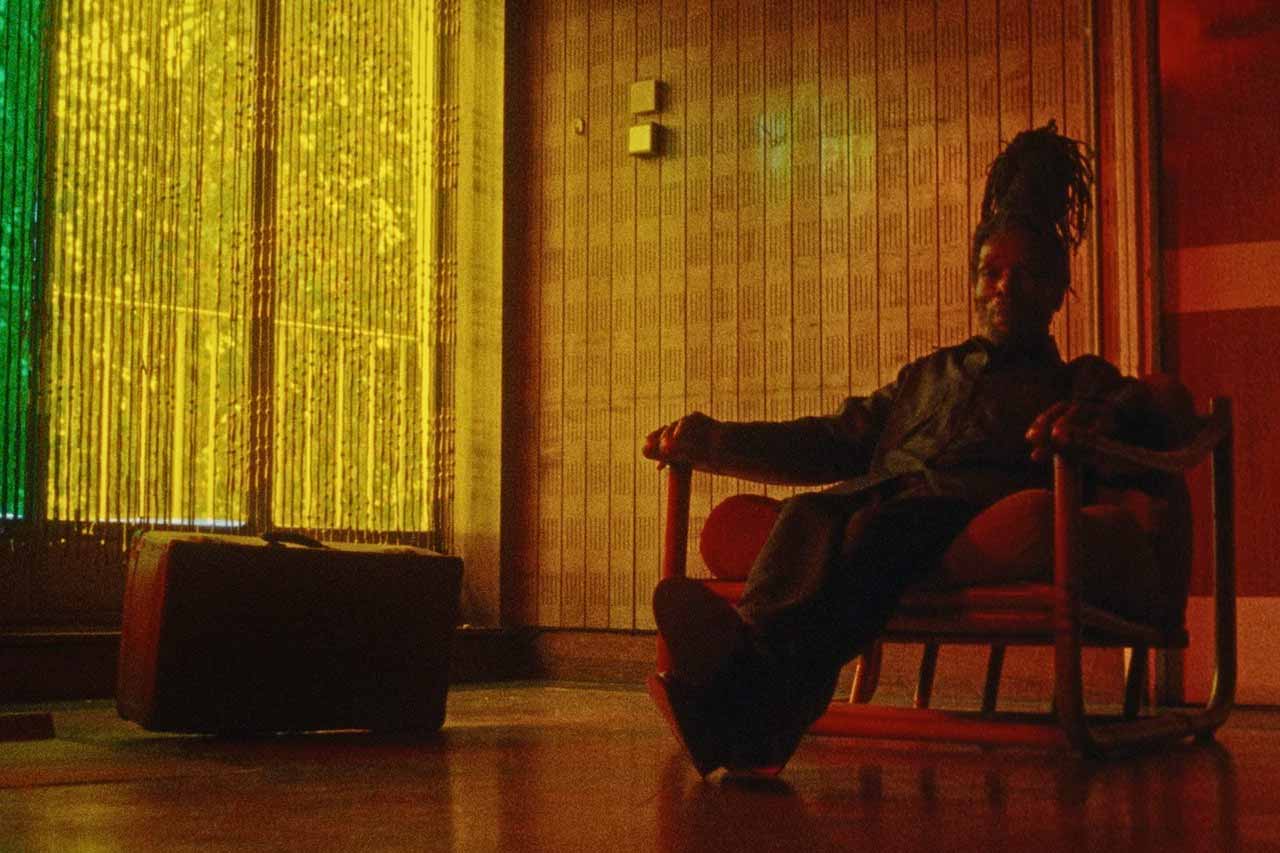 Joy by Priya Ahluwalia
Joy by Priya Ahluwalia
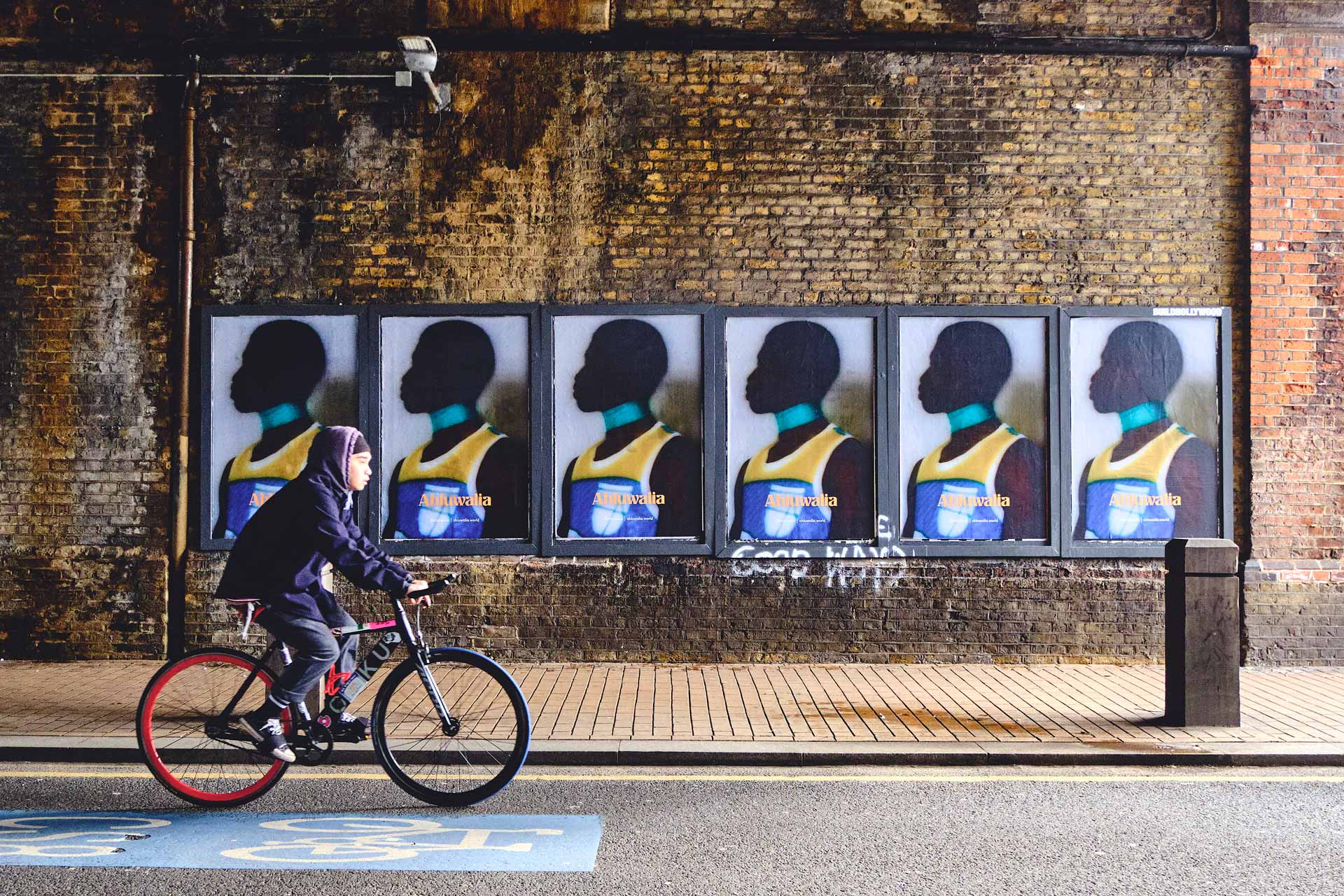
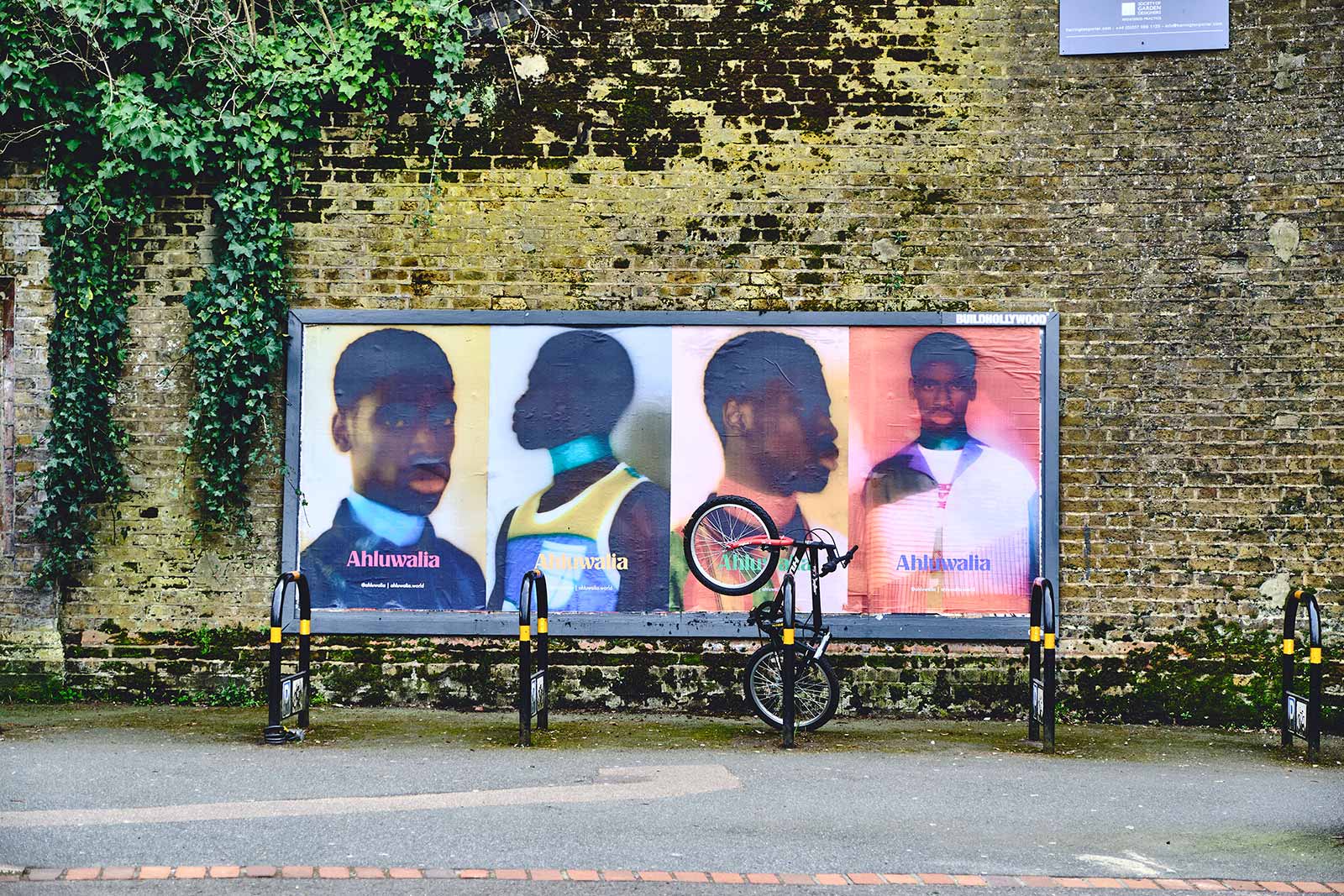
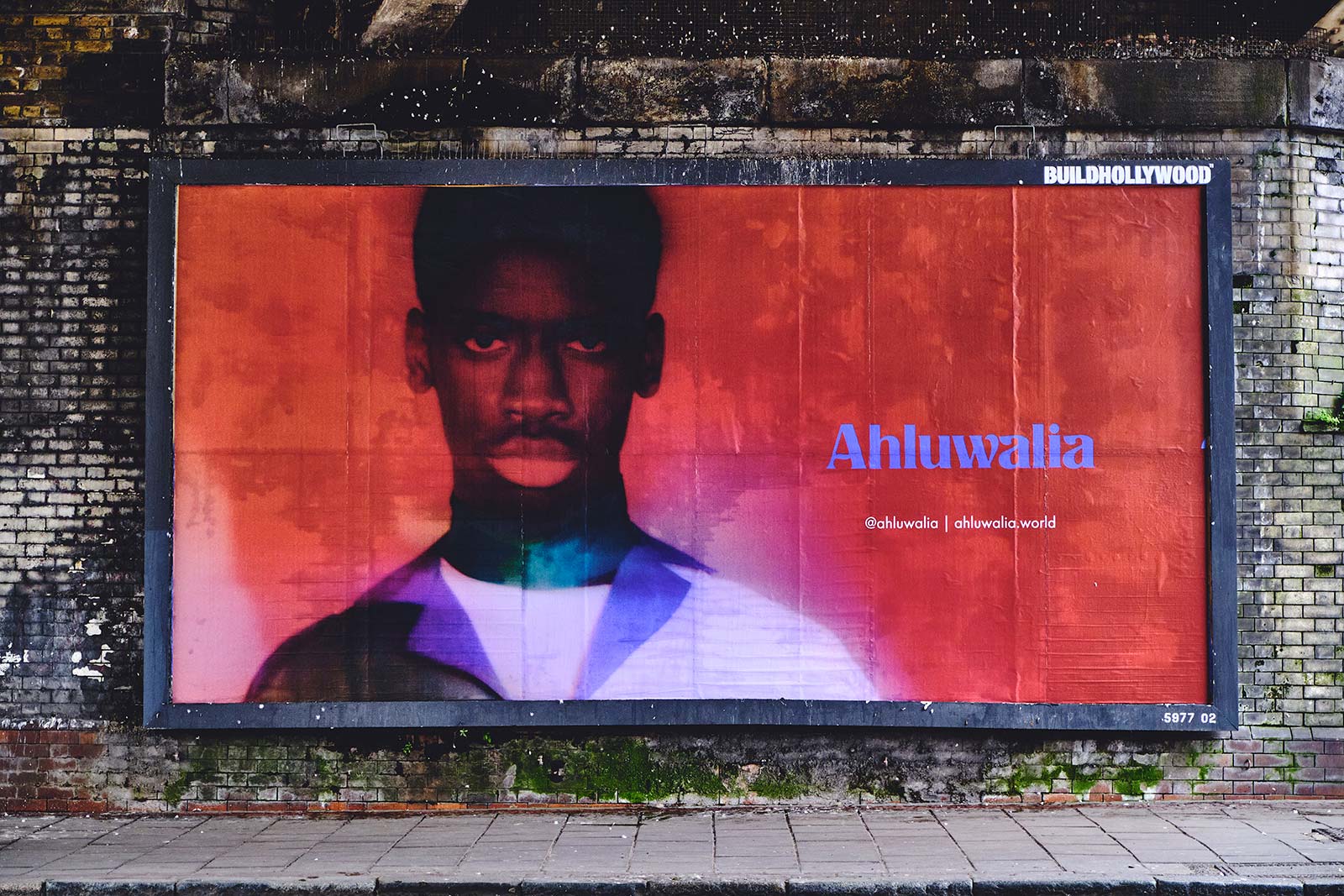
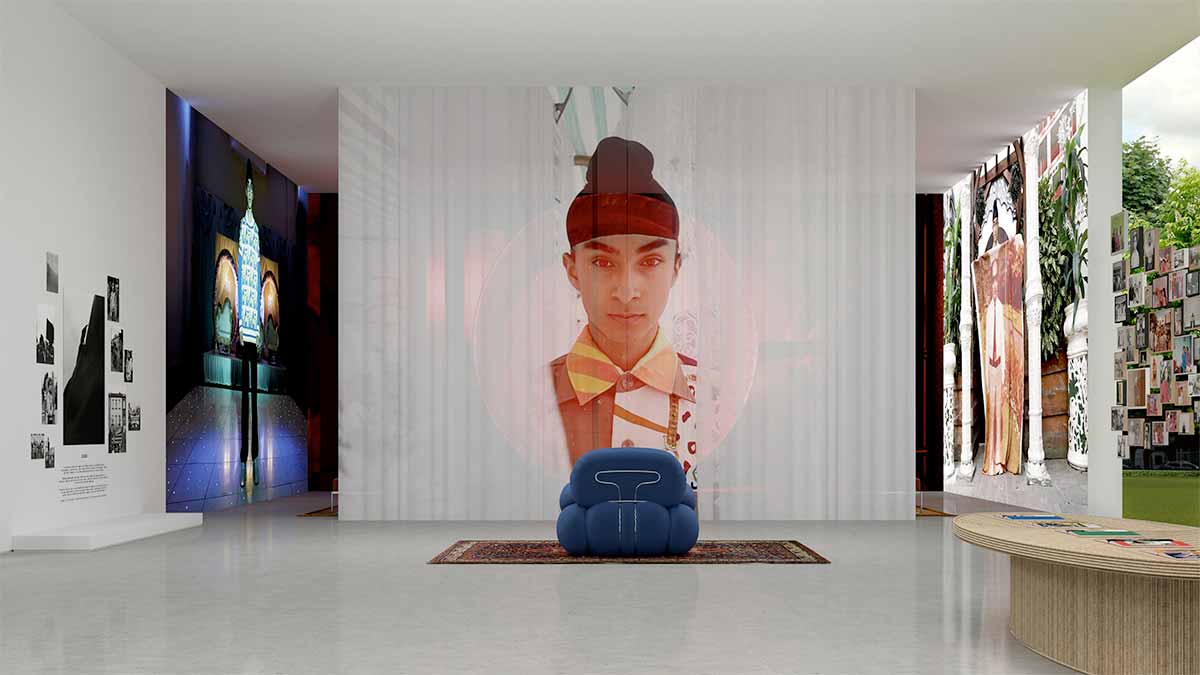 Jalebi (2020) by Priya Ahluwalia
Jalebi (2020) by Priya Ahluwalia
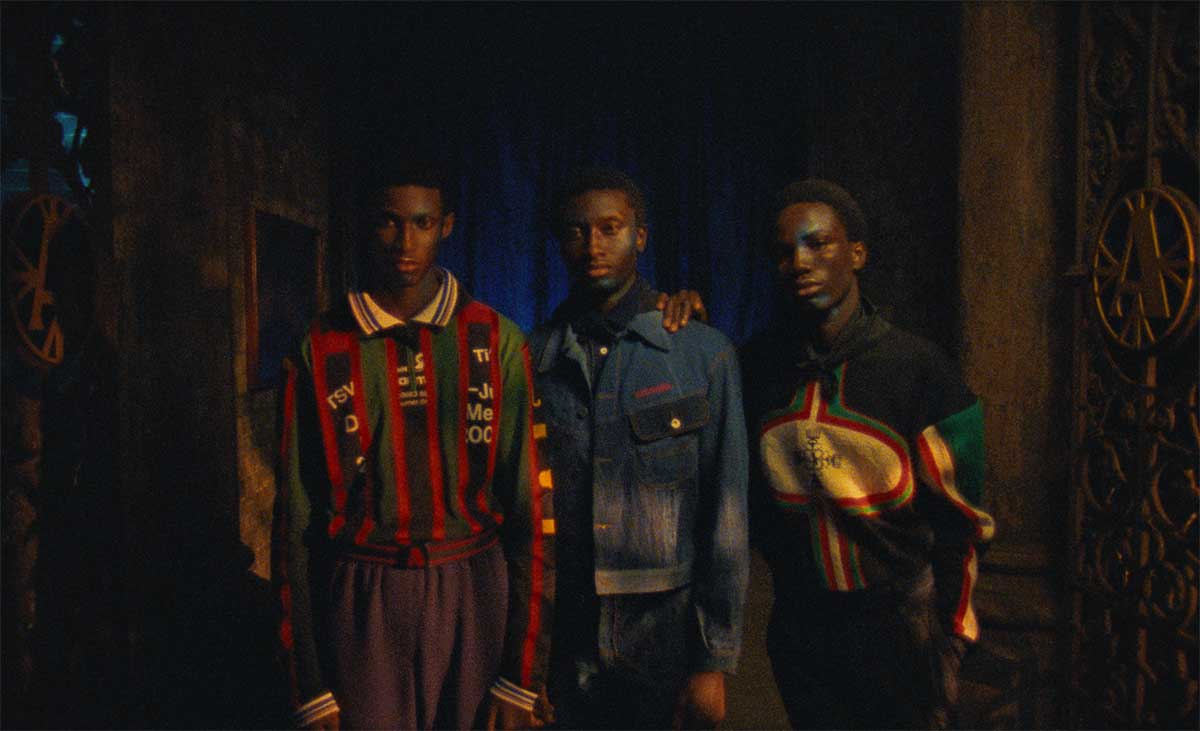 Traces AW21 Film, Photography @laurenceellis
Traces AW21 Film, Photography @laurenceellis
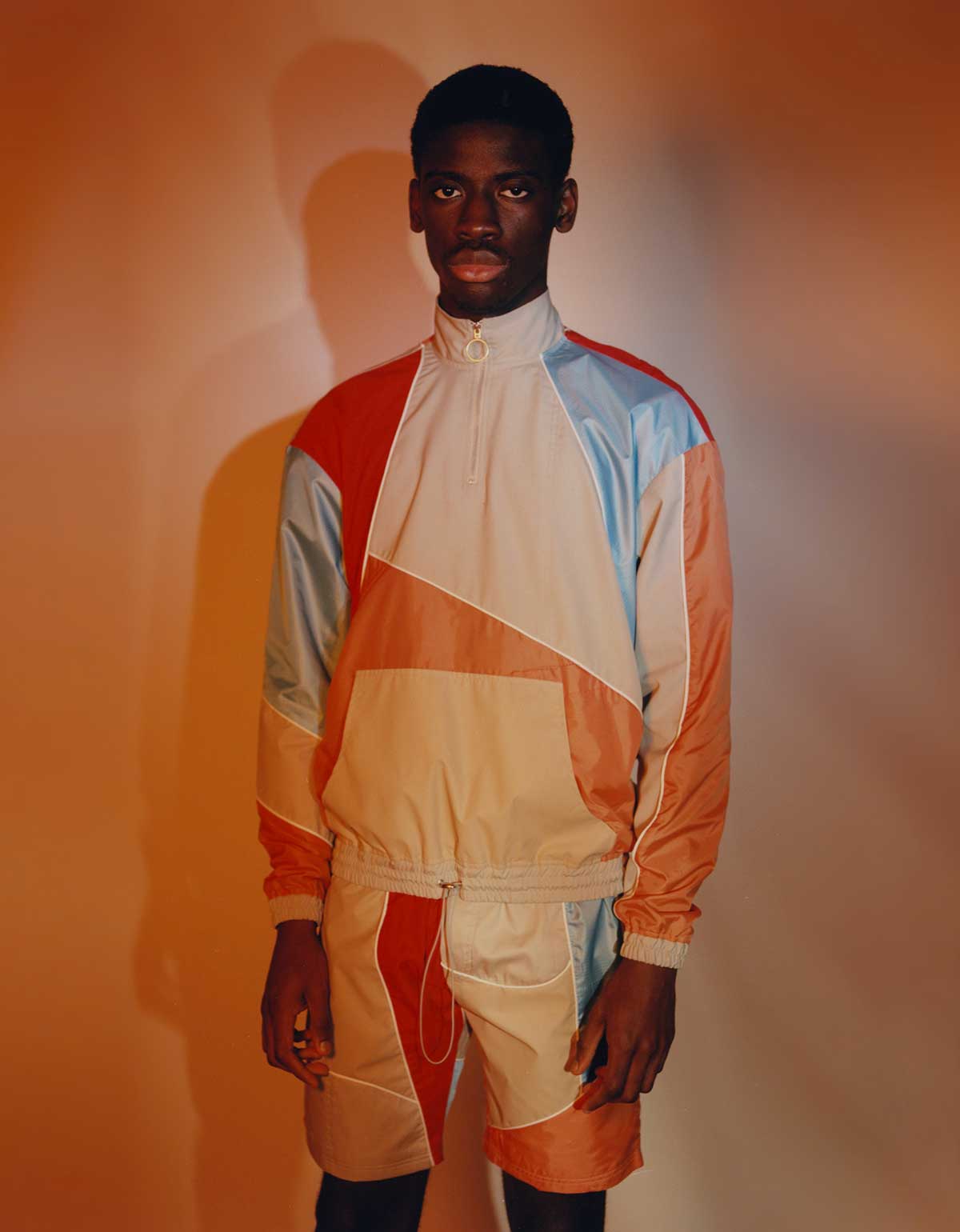 @Ahluwalia Spring Summer 2021, Photography @laurenceellis
@Ahluwalia Spring Summer 2021, Photography @laurenceellis
